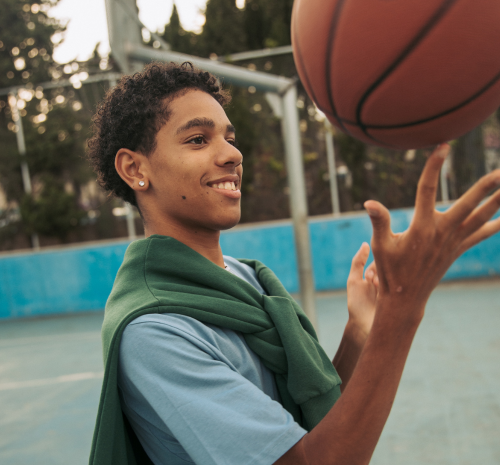As parents of teenagers with intense emotions and self-harm urges, finding effective coping strategies is a big concern. This blog discusses the Dialectical Behavior Therapy (DBT) TIPP skill, highlighting a crucial aspect that is often overlooked: the importance of time and the integration of multiple techniques for effective coping.
Understanding the TIPP Skill
TIPP is an acronym for Temperature, Intense exercise, Paced breathing, and Paired muscle relaxation. Tailored to manage intense emotions and urges, including self-harm, TIPP offers a structured approach to regaining emotional balance.
Temperature adjustments can have an immediate calming effect on the body's nervous system. For instance, using the Cold Water Technique, where your teen splashes their face with cold water or applies a cold pack to their eyes and cheeks, can trigger a 'diving reflex' that calms the nervous system. Alternatively, a warm bath can be soothing for those who feel agitated or tense.
Intense Exercise serves as an effective outlet for releasing the build-up of emotional energy. Activities like sprinting, jumping jacks, or dancing can help your teen channel their energy in a healthy way.
Paced Breathing is more than just taking deep breaths; it's about controlling the breath to reduce arousal and anxiety. A simple method is to inhale for 4 seconds, hold for 2 seconds, and exhale for 6 seconds, repeated for a minute or more.
Paired Muscle Relaxation involves tensing and relaxing different muscle groups, easing physical tension that often accompanies emotional stress. Your teen can tense each muscle group for 5 seconds, then relax for 10 seconds, working their way from feet to face.
The Problem of Inadequate Time and Isolated Techniques
A common error in managing self-harm urges in teens is the isolated use of coping techniques without allowing sufficient time for them to work. Each DBT TIPP skill, effective on its own, often falls short of its full potential when used in isolation or rushed. This leads to a cycle of frustration, with both parents and teens feeling the techniques are ineffective, thereby exacerbating emotional turmoil.
The Challenge of Combining Skills Effectively
Teaching these skills to your teen is one thing, but helping them integrate these techniques into a cohesive strategy is another. Without understanding how to stack these skills, teens might quickly revert to self-harm behaviors under stress, feeling that their efforts are in vain. This not only prolongs emotional distress but can also erode their confidence in future coping strategies.
The Solution: Strategic Combination and Patience
Combining techniques strategically and allowing them time to work synergistically is key. Encourage your teen to practice paced breathing immediately after engaging in intense exercise. This combination allows for the release of emotional energy through physical activity, followed by the calming effect of controlled breathing, creating a more profound effect than using either technique alone.
Pay attention to your teen's emotional cues. Depending on their state, you might start with a warm bath to soothe agitation, followed by muscle relaxation to ease any residual tension. Or, if they're experiencing an energy surge with their emotions, begin with intense exercise before moving to paced breathing.
It's crucial to emphasize patience to your teen. Allow each technique sufficient time to impact their emotional state. Regular practice and consistency are vital in increasing the effectiveness of these skills. Change doesn't happen overnight, and it's okay to take time to learn and adapt to these strategies.
The journey to effective coping is a marathon, not a sprint. Patience and strategic skill combination in using DBT's TIPP skill is key. As parents, understanding and implementing these strategies can significantly aid your teen in managing intense emotions and reducing self-harm urges. Remember, this process takes time, and consistent practice is key to mastering these life-changing skills.
